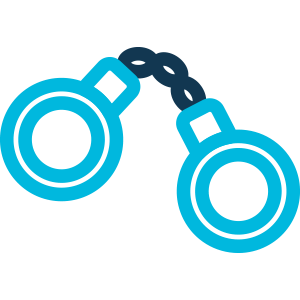
- Slavery, forced labour and human trafficking affect men, women and children across Europe.
- This kind of exploitation is prohibited under the case law of the European Court of Human Rights.
- Cases before the court have led to significant reforms in this area – including the criminalisation of slavery and human trafficking in several European countries.
Examples
Justice for an orphan whose aunt and uncle kept her as a servant
C.N. and her sister V. were sent to live with their aunt and uncle in France after their parents died. They were put to work and made to sleep in a cold cellar. The European court found that, in particular, C.N.’s circumstances amounted to servitude and forced labour. After the European court’s judgment, France passed a new law to better define and combat human trafficking.
Death of an alleged victim of human trafficking
At age 20, Oxana Rantseva was allegedly trafficked from Russia to Cyprus for sexual exploitation. Two weeks later, she was found dead beneath a balcony after trying to escape. The European court found that the authorities had failed to protect her and also failed to properly investigate after her death. Following the events, a series of measures were carried out to fight human trafficking.
Mass shooting of strawberry pickers leads to ongoing reforms
Hundreds of migrants were forced to work for months unpaid. When they demanded their pay, armed guards shot at them, seriously injuring 30 people. The guards and the employers were merely fined. The European Court of Human Rights ruled that the authorities had failed to properly address forced labour and human trafficking in this case – leading to widespread ongoing reforms.
Human trafficking criminalised after 14-year-old girl kept in domestic servitude in Paris
From the age of 14, Henriette Akofa Siliadin was kept in domestic servitude. She worked all day, 7 days a week for over 4 years, for no pay. The people responsible could not be properly brought to justice, because French law had not criminalised their actions. The case helped bring about legal reforms to combat human trafficking.
Practical reforms to combat human trafficking
L.E. was tricked into travelling to Greece with a human trafficker. When they arrived, the trafficker took L.E.’s passport and made her work as a prostitute. The European court found that after the authorities had been alerted, their response suffered from shortcomings and delays. Since that time, reforms have been introduced to help tackle human trafficking in Greece.
USEFUL LINKS
Council of Europe’s website on Action Against Trafficking in Human Beings
Factsheets on the case-law of the European Court of Human Rights:
Trafficking human beings PDF (185 Ko)
Slavery, servitude and forced labour PDF (250 Ko)
Article 4 –prohibition of slavery and forced labour PDF (300 Ko)


